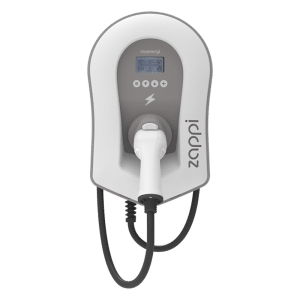Using Solar to charge your EV
EVs are becoming more and more common on New Zealand roads with 38,117 EVs in New Zealand (as of March 2022). The transition to EVs is expected to speed up with the Climate Change Commission recommending the government phase out imports of fossil-fueled cars by no later than 2035.
A Solar PV system is the perfect partner, if you have or are considering an EV. Solar power can be the fuel for your car, reducing the running cost of your EV.
Solar and EVs work hand in hand to maximise solar self-consumption, increasing your system and car’s ROI.
Reports show that combining rooftop Solar PV with battery storage and an electric vehicle can more than halve the payback period for a home solar system.
Charging your EV
There are two main ways to charge an EV: home-based charging and public on-the-go charging. Most people will predominantly charge their EVs at home or the office, occasionally topping up their cars at public fast chargers.
Home-based charging
At home, you have two charging options:
- A 3-pin plug (standard plug) that runs off a normal domestic plug. This charges your car quite slowly at a rate of around 1.5kW.
- Or a smart charger that charges your car faster but needs a direct circuit coming from your switchboard. This must be installed by a qualified electrician. The charge rate increases to a rate of 7.4kW-22kW, depending on the supply you have to your property.
Standard plug
The simplest and cheapest solution is a standard plug that typically comes with the vehicle and doesn’t require professional installation. You can still optimise your EV’s charging as most EVs can set a timer on the car’s dashboard to initiate charging when plugged in. This is useful when you want to coordinate charging with when the sun is shining and your solar is producing, or if you have a lower ‘night rate’ from your retailer.
Smart Chargers
Smart Chargers can help to limit exporting or importing power from the grid. They help you make the most of your solar energy and save money on your energy bills.
Remember, multiple factors will impact your rate of charging at home:
- The supply you have to the property (single or three phase).
- The type of Smart home charger you use (if you use one).
- The make and model of the car.
Even if you don’t have an EV yet, it is worth considering adding a smart charger as part of your system installation. It’s easy for our team to do this at the same time and it future-proofs your system.
Our recommended smart chargers:
WattPilot

If having all of your solar and charging data in one place is something you’d like, then the Fronius WattPilot is a great choice.
We’ve worked with Fronius for years and most of our installations have a Fronius solar inverter installed. They are well known for their quality and their intuitive monitoring platform. The Wattpilot integrates with the same monitoring system, SolarWeb, making it easy to monitor and control all components of your system in one place.
The WattPilot can use the data it collects and artificial intelligence to optimise the charging of your EV based on your solar production, energy prices, and your driving habits.
Zappi
 If super-intelligent use of your solar energy is what you are after, Zappi probably trumps the competition. This smart charger can monitor and manage the flow of energy between your solar panels, your home, and your car. It then automatically adjusts the charging speed of your EV based on how much solar energy is available. For example, if there any no other energy draws, it will direct all excess solar into your EV. But if you then turn on the oven or washing machine, the Zappi knows to reduce the amount of solar energy being put into your EV rather than drawing from the grid – ensuring that you’re making the most of your renewable energy.
If super-intelligent use of your solar energy is what you are after, Zappi probably trumps the competition. This smart charger can monitor and manage the flow of energy between your solar panels, your home, and your car. It then automatically adjusts the charging speed of your EV based on how much solar energy is available. For example, if there any no other energy draws, it will direct all excess solar into your EV. But if you then turn on the oven or washing machine, the Zappi knows to reduce the amount of solar energy being put into your EV rather than drawing from the grid – ensuring that you’re making the most of your renewable energy.
The future of EV charging
Bidirectional charging is likely to be the norm when using EVs in the future. This will give you the ability to charge home to car and car to home, effectively allowing you to use your car as a battery for the house (or even the grid).
The cost and availability of the technology combined with regulatory restrictions and constraints from the vehicle manufacturers mean this isn’t viable right now.
According to EECA, the government is considering the role of emerging technologies, such as vehicle-to-grid capability, to mitigate the impact on the electricity network and identify any regulatory barriers to their uptake.
We will be watching this space to see what develops, and how it might benefit EV users with solar.
If you are interested in installing solar panels with an EV charger then fill out the form below and one of our team will get in touch with you to see how we can help.
"*" indicates required fields